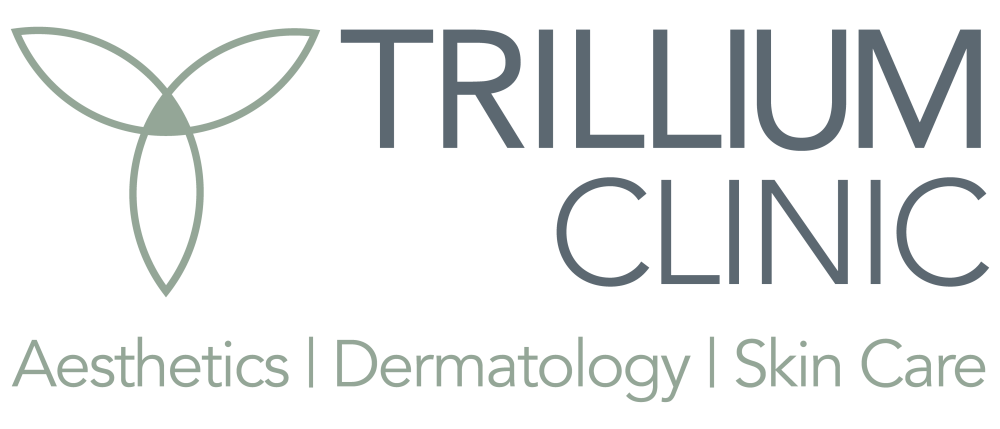Hyperhidrosis is a very common skin condition. However, patients struggle to find effective treatments. We understand the frustration of dealing with excessive sweating. At the Trillium Clinic, our solutions are designed to address hyperhidrosis at its cause, helping your skin heal and allowing you to be free of excess sweat. Begin your advanced hyperhidrosis treatment today, and say goodbye to the persistent wetness of excess sweating.
What is Hyperhidrosis

There are two primary types of hyperhidrosis:
Primary focal hyperhidrosis: This type of hyperhidrosis is localized and typically affects specific areas of the body, such as the palms of the hands, soles of the feet, underarms, or face. It usually starts in adolescence or young adulthood and is thought to have a genetic component.
Secondary generalized hyperhidrosis: This type of hyperhidrosis is caused by an underlying medical condition or medication. It can affect larger areas of the body and may develop later in life.
What Causes Hyperhidrosis
The exact cause of primary focal hyperhidrosis is not fully understood, but it is believed to involve overactive sweat glands. Secondary generalized hyperhidrosis can be triggered by various factors, including certain medical conditions (such as hyperthyroidism, diabetes, or menopause) and medications (such as some antidepressants or beta-blockers).
What are the Symptoms of Hyperhidrosis
The main symptom of hyperhidrosis is excessive sweating that can occur in various situations, including during normal daily activities or at rest. Other symptoms may include:
Visible sweating: Sweat may soak through clothing or drip from the affected areas.
Interference with daily activities: Excessive sweating can disrupt daily life, making it difficult to handle objects, grip things firmly, or perform tasks that require precision.
Emotional impact: Hyperhidrosis can cause embarrassment, social anxiety, and emotional distress due to visible sweating and the fear of odor.
How is Hyperhidrosis treated
Treatment options for hyperhidrosis depend on the severity and impact of symptoms. They may include:
Antiperspirants: Stronger prescription-strength antiperspirants containing aluminum chloride can help reduce sweating when applied to the affected areas.
Medications: Oral medications like anticholinergics may be prescribed to inhibit sweat gland activity, although they may have side effects.
Qbrexza is a prescription medication that is used to treat excessive sweating. It comes in the form of a topical wipe that is applied to the underarms once daily. Qbrexza contains glycopyrronium, which works by blocking the sweat glands to reduce excessive sweating. The medication is easy to use and provides a convenient and discreet option for managing excessive underarm sweating.
Botox injections: Botox injections can temporarily block the nerves that stimulate sweating, providing relief for several months.
Iontophoresis: This procedure involves passing a low electrical current through the skin to temporarily block the sweat glands.
Surgical options: In severe cases, surgical interventions like sympathectomy (cutting or clamping the nerves that trigger sweating) may be considered, but they carry risks and are generally reserved for specific situations.
Embark on your journey to radiant skin
It is important to consult with a dermatologist, for an accurate diagnosis and appropriate treatment of hyperhidrosis. A dermatologist will provide guidance on managing symptoms and improving quality of life. If you are suffering from excessive sweating make an appointment here to see one of the providers at the Trillium Clinic in Chapel Hill. We will offer guidance on managing and preventing your excessive sweating. We are currently accepting new patients from Chapel Hill, Carrboro, Hillsborough, Pittsboro, Mebane, Durham, Burlington, Cary, and surrounding cities, who suffer from hyperhidrosis. Call us today to discuss the best treatment option for you.
